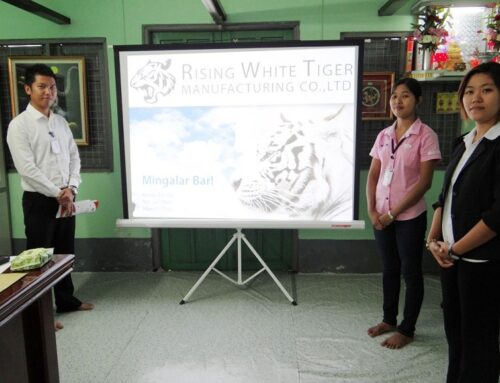
The IMF’s close collaboration with Myanmar in recent years culminated in the successful completion of a Staff-Monitored Program in 2013, designed to support Myanmar’s reform efforts and to build institutional capacity for macroeconomic management. IMF continues to provide intensive policy advice through annual policy consultations, as well as substantial assistance in capacity development. Yasuhisa Ojima, Resident Representative of IMF, discusses Myanmar’s macroeconomic development and IMF’s involvement is the country.
European Times: How would you characterize Myanmar’s growth since its opening to the world?
Yasuhisa Ojima: Myanmar’s growth remains robust. IMF recently projected growth for this fiscal year to be around 8%. Overall, Myanmar’s macroeconomic performance has been strong since 2011 with real GDP growth averaging 7-8% and inflation coming down from an annual average of around 20% to less than 5% after 2011.
European Times: From your own perspective, which are the biggest vulnerabilities Myanmar’s economy faces at the moment?
Yasuhisa Ojima: Myanmar faces an uncertain external environment and is vulnerable to external shocks, such weak global energy prices, a growth slowdown in China, slow recovery in advanced countries, and volatile international financial markets. Domestically, Myanmar continues to face challenges in maintaining macroeconomic and financial stability, critical to supporting business confidence and hence sustaining FDI inflows. With sound policies and capacity development, Myanmar can reduce its vulnerabilities and become more resilient to shocks.
European Times: What will be key short-term measures by the authorities to achieve macroeconomic stability?
Yasuhisa Ojima: A loose macroeconomic policy mix and supply shocks (e.g., the massive floods in July-September 2015) have led to rising inflation and kept it high and the external current account balance has deteriorated, exerting depreciation pressures on the kyat. Against this background, the authorities need to tighten the macroeconomic policy stance while ensuring exchange rate flexibility to absorb shocks. The immediate priority is to phase the central bank financing of fiscal deficits, which is inflationary, and mop up excess liquidity in the banking system.
European Times: What concrete measures is the new government implementing for long-term growth and poverty reduction?
Yasuhisa Ojima: A policy tightening may reduce GDP growth somewhat in the short run, but a more stable economy will benefit growth and poverty reduction in the longer term. With the 12-point new economic policy announced in July, the new government will continue to improve revenue administration and reform tax policies, and further prioritize government expenditure. These reforms will help reduce fiscal deficits and inflation. T-bill auctions continue to improve and t-bond auctions have recently commenced. Scaling up of these auctions will help reduce Central Bank’s financing of fiscal deficits and improve its deposit auctions. Overall, progress has been made, but there is still much to do to bring down inflation and reduce current account deficit in order to secure stronger and more sustainable growth.




